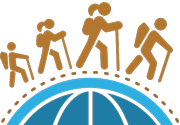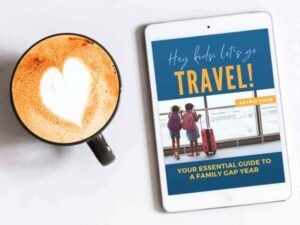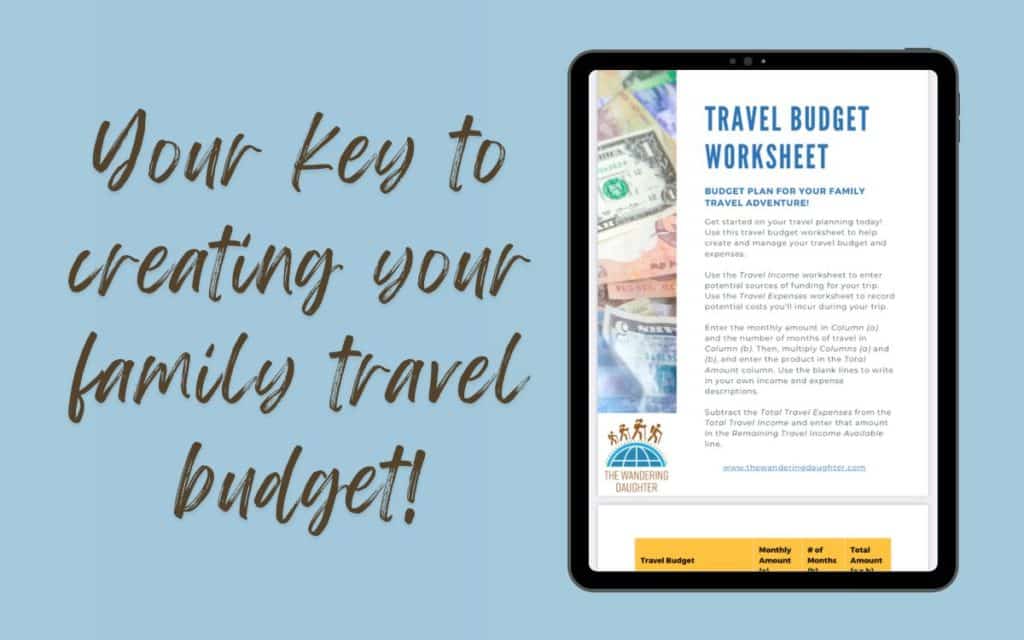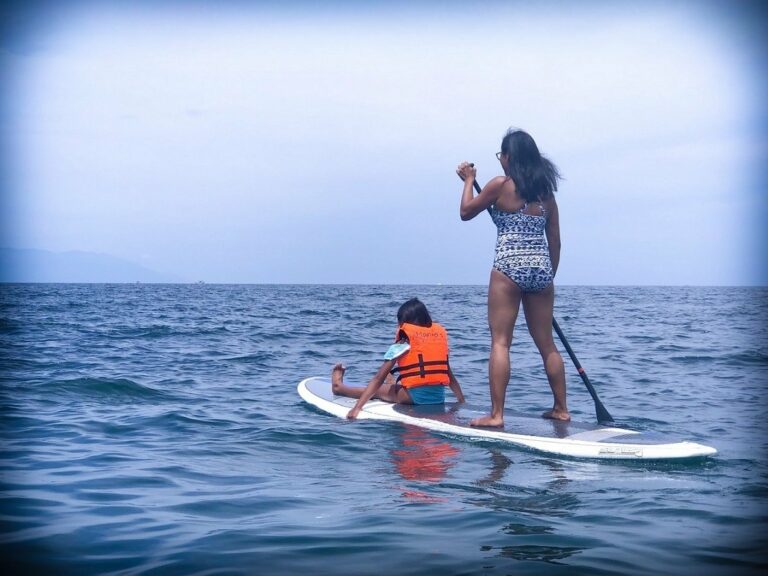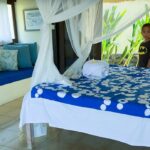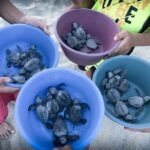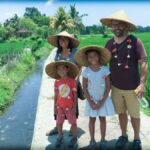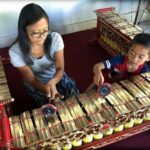5 Fun Reasons Families Will Love ChocoMuseo
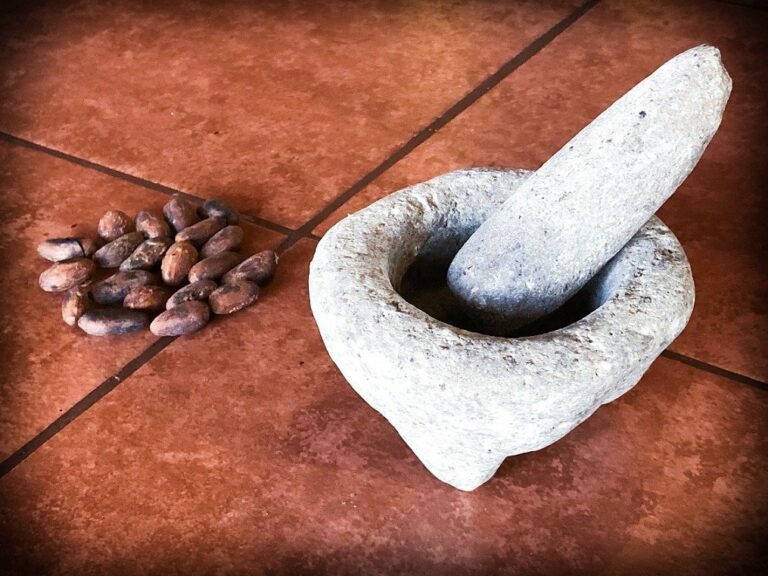
We are big fans of chocolate! One thing I’ve learned since coming to Costa Rica with kids is how strong the chocolate culture is. I never realized this! I had heard about Costa Rica’s coffee culture from my previous trip here. But as it turns out, chocolate also has a strong cultural presence too. When I heard about this, I knew I had to take a chocolate workshop ChocoMuseo La Fortuna learn more about Costa Rica chocolate.
Fortunately for us, Costa Rica offers plenty of opportunities for visitors to learn about chocolate, from taking a chocolate tour to doing a chocolate making workshop. In La Fortuna, Costa Rica, my daughter and I decided to do a chocolate workshop offered by ChocoMuseo. They invited us to spend an afternoon learning all about how to make chocolate.
This post was updated on March 5, 2020.
This post may contain affiliate links. That means I may receive a small commission if you click on the link and purchase something. But don't worry, this will not result in any extra costs to you.
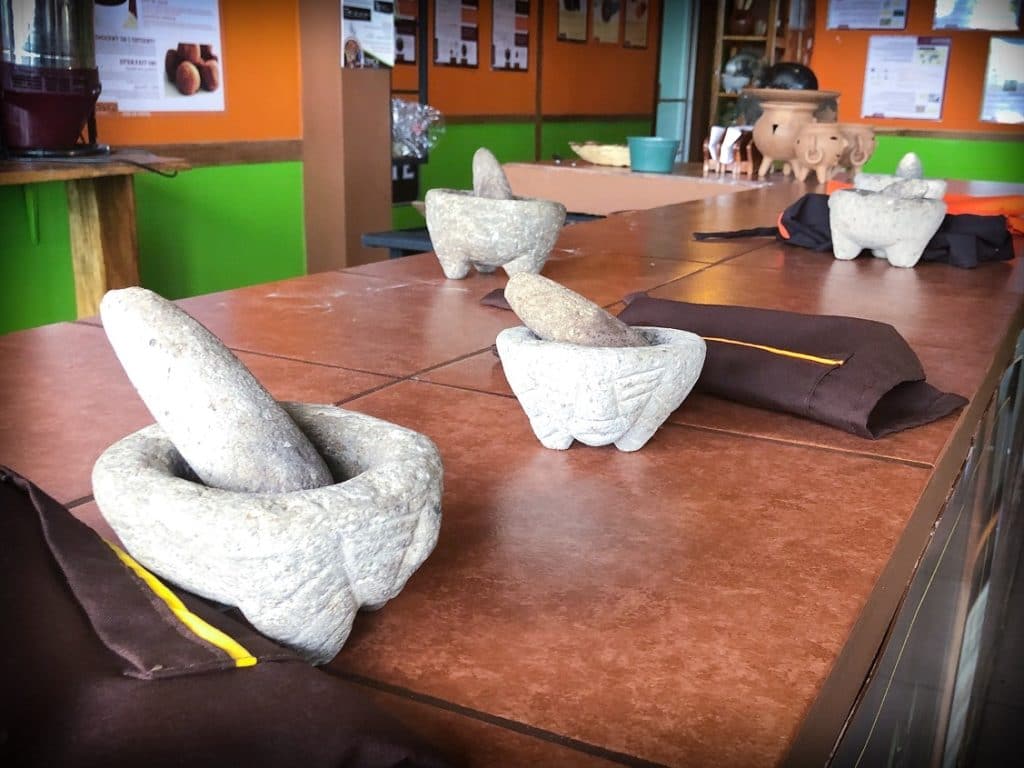
Learning about the origins of Costa Rica chocolate at ChocoMuseo La Fortuna
ChocoMuseo La Fortuna has a lot of information about the history of chocolate. Costa Rica chocolate can trace its roots back to the ancient Mayan and Aztec civilizations that once ruled Central America. Chocolate was so revered in their culture, they used the cacao bean as currency!
The cacao bean was also used in ceremonies, ground up and mixed into a special drink. In fact, the drink we now know of as hot chocolate can trace its origins to the Mayan drink called cocohuatl (also known as xocolatl in Aztec), which translates to “bitter water.”
The spread of chocolate through colonization
When the Spanish came to Central America, they were introduced to chocolate by the Mayans and the Aztecs. The Spanish, and the rest of Europe, became hooked on chocolate. And soon, cacao trade between Central America and Europe flourished. But as trade grew, the presence and power of European countries throughout Central America also grew.
Cacao plantations grew throughout the region. And in addition to employing indigenous laborers, these plantations also utilized the labor of African slaves. If you're interested in a more in-depth look at chocolate's history before your visit to ChocoMuseo La Fortuna, check out The True History of Chocolate by Sophie Coe and Michael Coe.
The chocolate industry today
These days, Costa Rica chocolate, as well as chocolate from the rest of Central America, is eclipsed by chocolate produced by countries in Asia and Africa. But that doesn’t mean that the chocolate industry in Costa Rica has disappeared.
Cacao plantations still exist in the provinces of Guanacaste, Alajuela, Talamanca, Cartago, and Puntarenas. And much like the coffee industry in Costa Rica, you can learn about this industry by taking a chocolate tour or a chocolate making workshop.
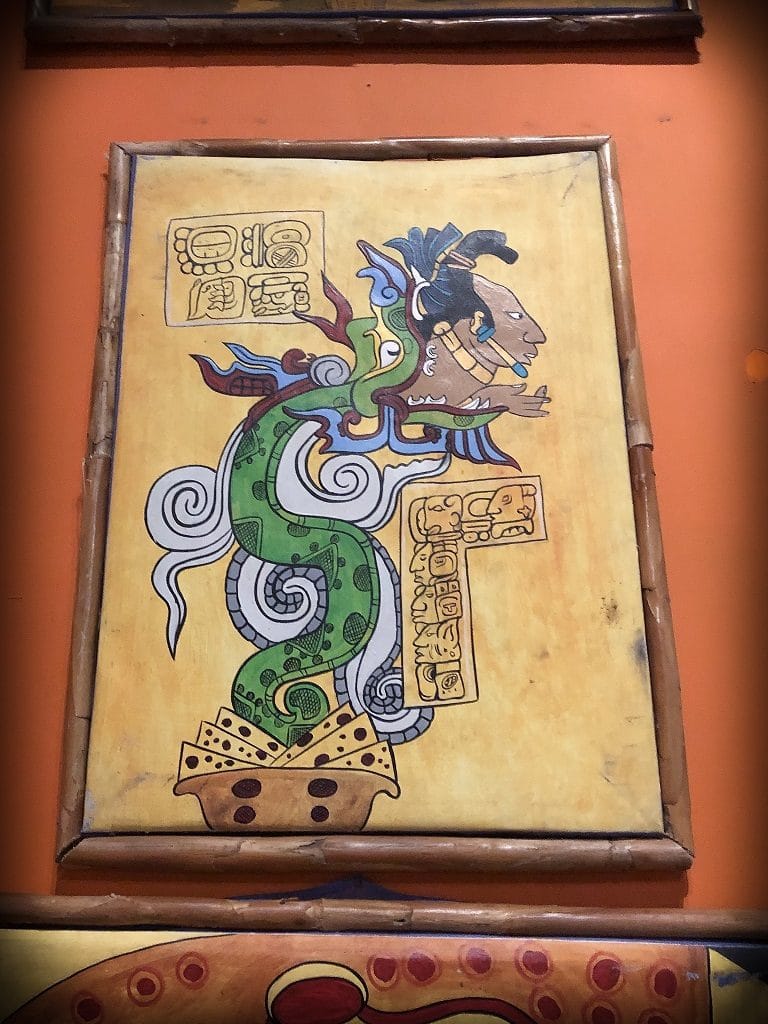
Taking a chocolate making workshop with ChocoMuseo
My daughter and I were both excited about taking a chocolate making workshop with ChocoMuseo La Fortuna. Since we are worldschooling, I’m always on the lookout for learning opportunities for my kids. My son chose to opt out, he’s still a bit too young for cooking classes and demonstrations anyway. But my daughter was extremely thrilled about the prospect of making her own chocolate bar, so she was all in for the chocolate workshop.
Basic info about ChocoMuseo
ChocoMuseo is a South American based company that has locations in seven different countries throughout Central and South America. While the ChocoMuseo branch in La Fortuna no longer exists, there are other branches in Peru, Mexico, and Guatemala.
They offer chocolate making workshops, where you learn about the process of making chocolate from the cacao bean to the bar, for $29 for adults and $18 for kids. They also offer chocolate tours in addition to the workshop, where you can visit a chocolate farm and also learn about how cacao trees are cultivated. These experiences cost $49 for adults and $38 for kids.
Family friendly chocolate workshop
Since we had done a lot of tours and excursions while we were in La Fortuna, my daughter and I opted for just the chocolate workshop. We’re glad we did. The workshop offered by ChocoMuseo La Fortuna was just the right length of time to keep kids engaged. And at the end of it, she received a certificate! She was so proud of herself.
Check out all the other fun things to do with kids in Costa Rica here.
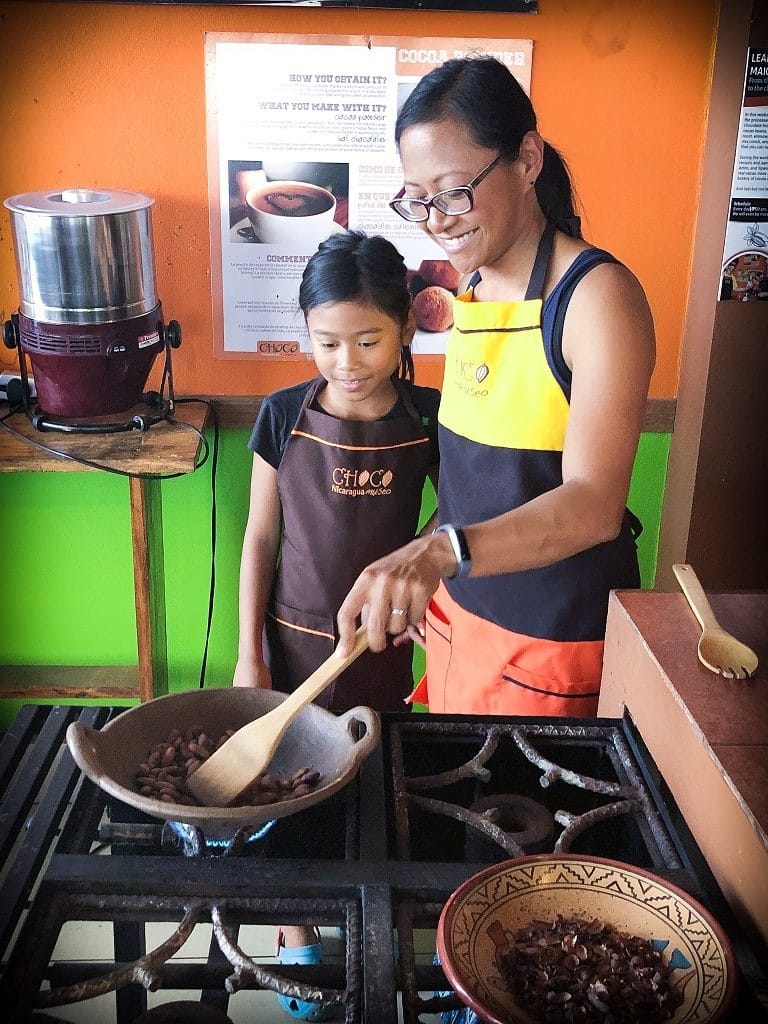
Why families will love doing a chocolate workshop in Costa Rica with ChocoMuseo La Fortuna
Taking workshops while you travel is a great way to dive deeper into the cultures that you visit. At times, it can be far more educational than just going to a museum! Also, it's a great opportunity for family bonding while you travel.
If you’re on the fence about doing a chocolate workshop while in Costa Rica, here are a few more reasons why your family will love doing this one offered by ChocoMuseo La Fortuna.
1. You’ll get to eat chocolate!
By far, my daughter’s favorite part of the chocolate making workshop was getting to eat the chocolate that she made during the workshop. At our ChocoMuseo La Fortuna workshop, we had a chance to make our own chocolate bars and pick out the add-ins we wanted to include in the bars. I chose chili and coconut, while my daughter chose chocolate chips and coconut.
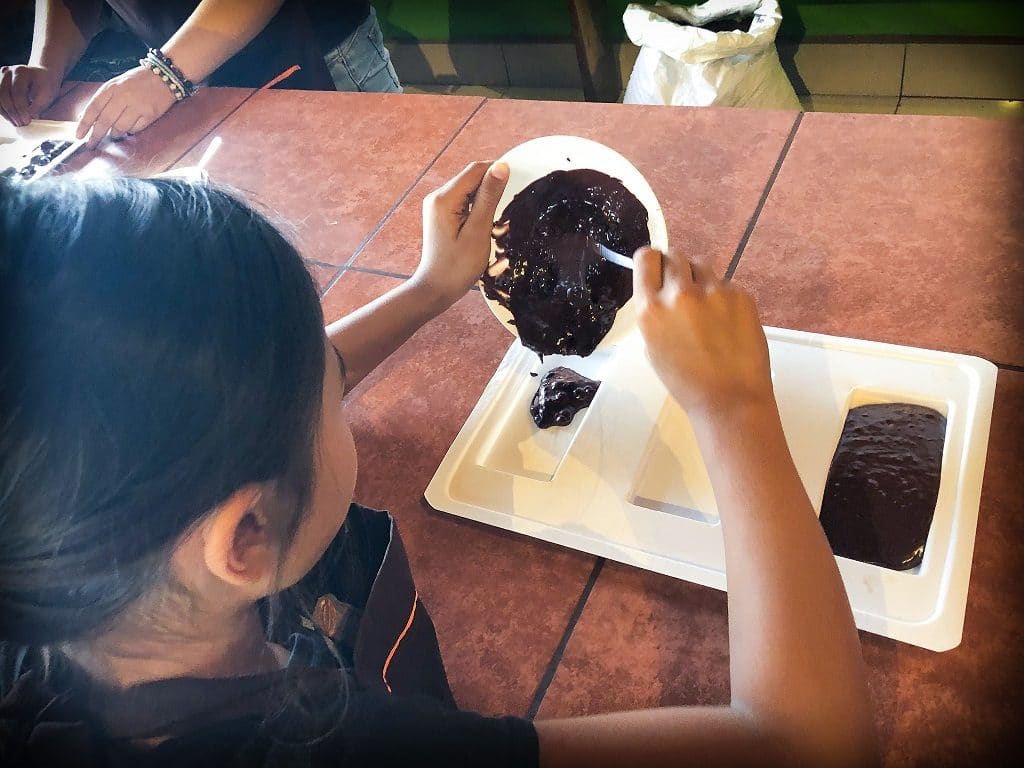
2. The chocolate workshop is hands-on fun
I’m always on the lookout for travel experiences for my kids that are a bit more hands-on. They learn so much more from hands-on experiences than walking through a museum and reading plaques (although, I still do love visiting museums). And it's a great way to make worldschooling interesting and fun for my kids and me.
During our chocolate workshop at ChocoMuseo La Fortuna, my daughter and I had a chance to roast cacao beans and peel them. We also got to grind them into a paste and mix them with water and spices, just like what the Mayans and Aztecs used to do to make their chocolate drink. I’m not going to lie, it was a tough workout for the hands to grind the beans into a paste. But the end product was so delicious!
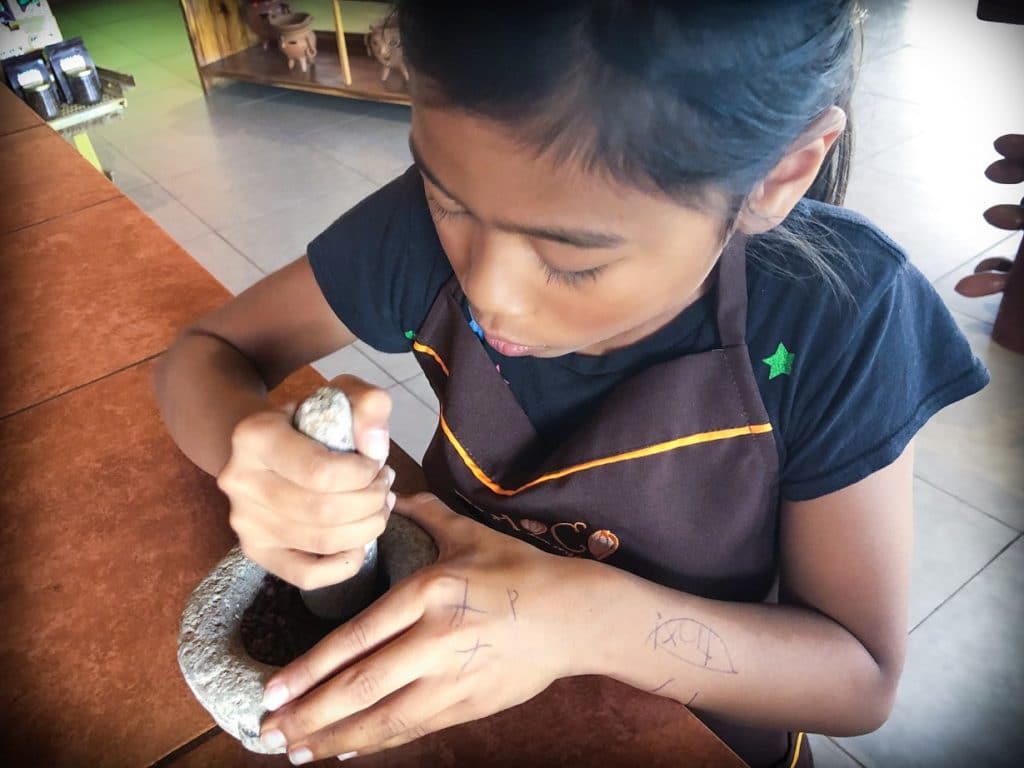
3. An opportunity to meet new people
When I asked my daughter what was something that she liked about taking workshops and classes, she responded by explaining how she liked being able to meet new people. I couldn’t agree with her more. One of the fun parts about taking a workshop while you travel is being able to meet some interesting people, both the fellow learners and the teachers.
During our chocolate workshop, we met a father and daughter who were traveling to Costa Rica from New York. And afterward, we had a chance to talk to Victoria, who runs the La Fortuna location, and learn about some of the things ChocoMuseo La Fortuna does with the local community.
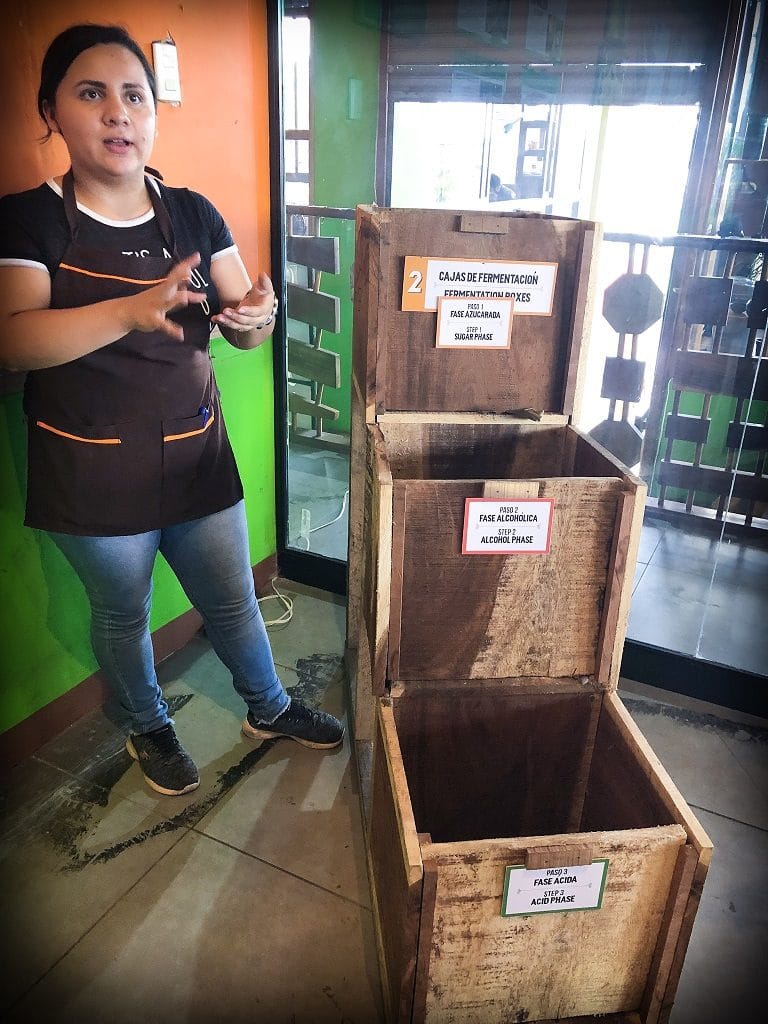
4. Learn about the history of chocolate
As consumers of chocolate, I think it’s important to understand the history of the product that we regularly enjoy. This also helps you to become a more conscientious consumer, and encourages more sustainable and responsible tourism.
During our chocolate workshop at ChocoMuseo La Fortuna, we were able to learn a bit more about the history of chocolate. We learned how the Mayans and Aztecs used cacao beans during ancient times.
And we also learned how the Spanish and Europeans adapted the traditional Mayan drink recipe into something that was a bit more palatable to European taste buds. It’s always interesting to learn the origins of things like Costa Rica chocolate.
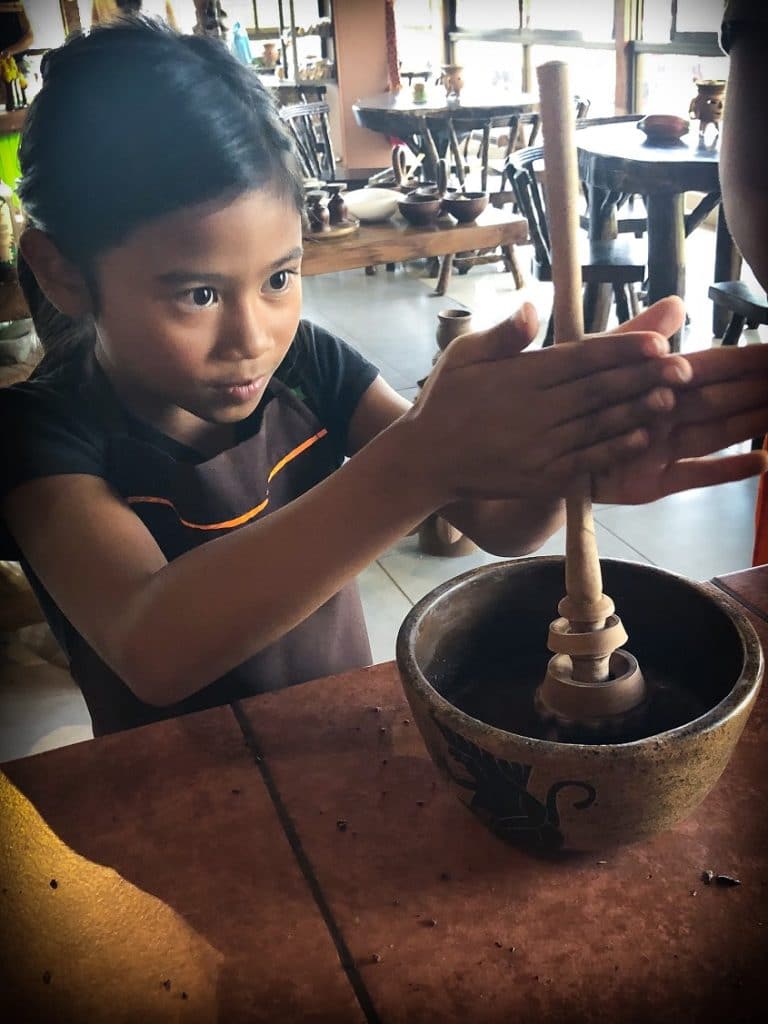
5. You gain an appreciation for fine chocolate
One of the biggest things you learn after taking a chocolate making workshop or a chocolate tour from ChocoMuseo La Fortuna is just how complicated the whole process is. From bean to bar, there are at least eight steps: picking the beans, fermenting them, drying them, roasting them, grinding them, mixing them with milk, pouring them into a mold, and cooling them.
These days, there are machines that make all the steps to this process much easier, but I definitely now have much more of an appreciation for fine artisan chocolate!
Learn more about what responsible travel means for families in these posts.
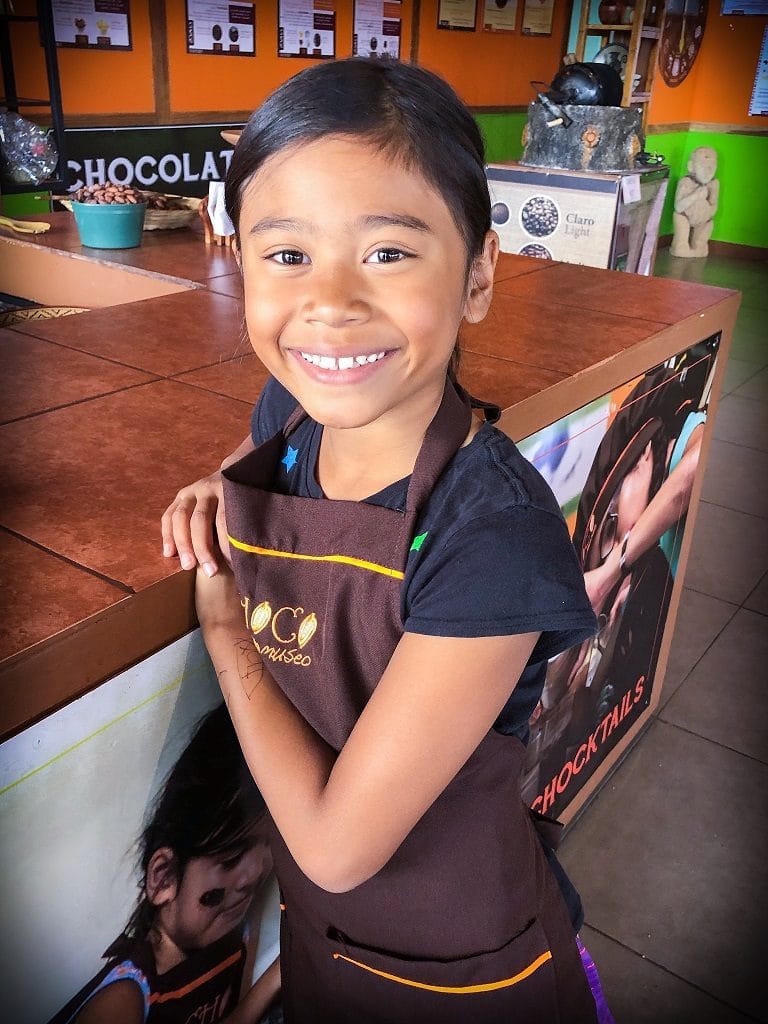
Taking a ChocoMuseo La Fortuna chocolate tour on your next vacation
Whether you do it with ChocoMuseo La Fortuna, or elsewhere, I highly recommend doing a chocolate tour or a chocolate workshop on your next vacation. We loved the hands-on aspect of the workshop, and we learned so much from the experience too!
Have you done a chocolate making workshop with your family? Share what you thought about it in the comments.
Planning to visit Costa Rica as part of a bigger family travel adventure? Use my ebook, Hey Kids, Let’s Go Travel! as a resource for tools, advice, and action steps for planning your trip.
Note: This is a sponsored post. We received a complimentary workshop for my daughter and me from ChocoMuseo La Fortuna in exchange for this blog post. However, the views and opinions in this post are completely my own.
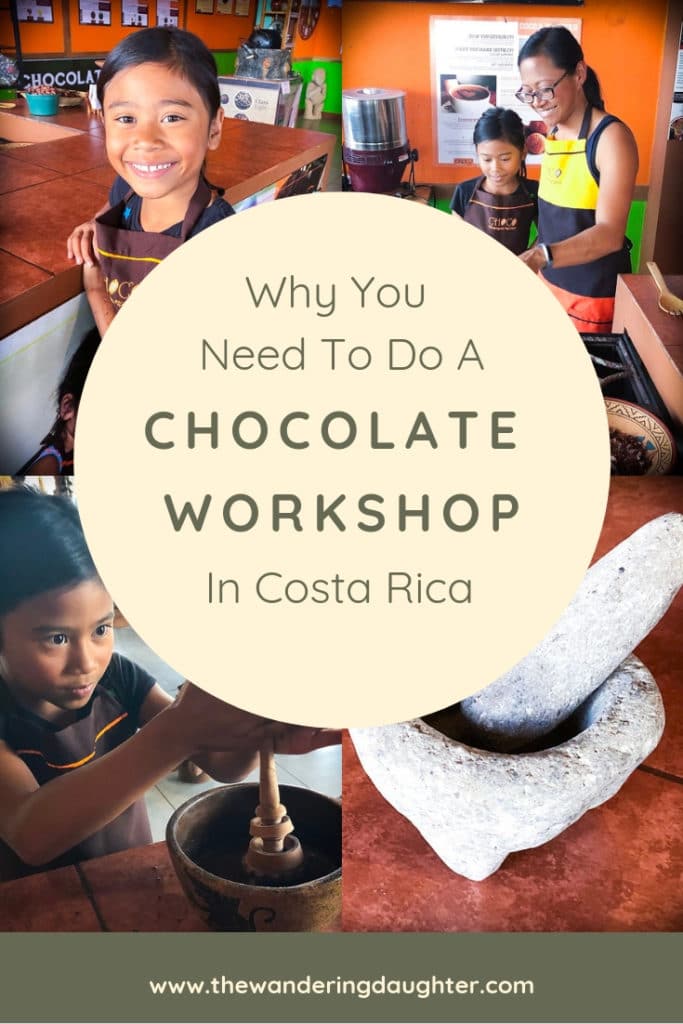
Need help thinking through how to budget for a family trip? My Travel Budget Worksheet is just the tool you need! Click here to receive your free copy by signing up for my newsletter.
Want to connect with me on social media? Find me on Facebook, Instagram, Pinterest, and Twitter. And for those of you who are dedicated to traveling more responsibly, sustainably, and ethically, join over 500 like-minded families on my Facebook group, Responsible Family Travel.
